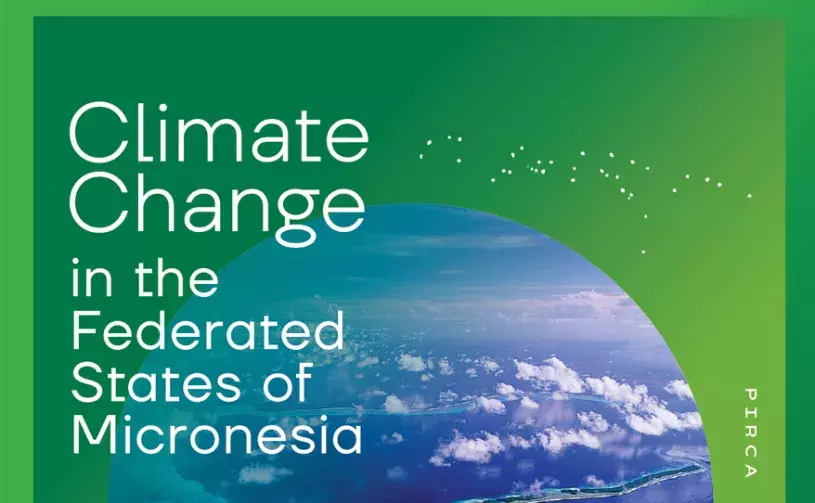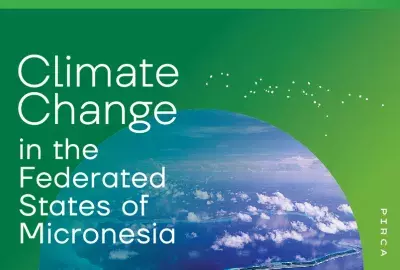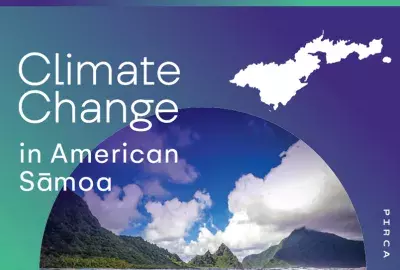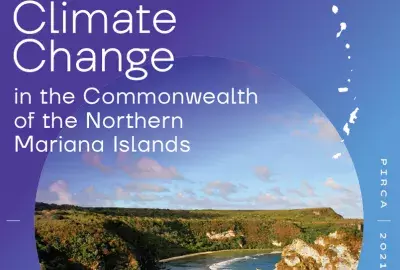Error message

Stronger typhoons, growing challenges for populations on low-lying atolls, ecosystem declines, and human health issues are among the major risks detailed in a new report on climate change in the Federated States of Micronesia (FSM). Threatened resources include culturally significant coastal infrastructure and the tens of millions of dollars that fisheries inject into the FSM’s economy annually, according to the report by the Pacific Islands Regional Climate Assessment (PIRCA), a consortium of several government, NGO, and research entities.
Climate Change in the Federated States of Micronesia: Indicators and Considerations for Key Sectors is a report developed by PIRCA. It is one in a series of reports aimed at assessing the state of knowledge about climate change indicators, impacts, and adaptive capacity of the US-Affiliated Pacific Islands (USAPI) and the Hawaiian archipelago. Authors from the East-West Center, Arizona State University, and the University of Hawaiʻi—along with 30 technical contributors from local government, NGOs, and research—collaboratively developed the FSM PIRCA report.
Climate change is expected to disrupt many aspects of life in the FSM. Specific groups—including children, older adults, women, and those living in remote communities—are likely to be disproportionately affected. This report provides guidance for decision-makers seeking to better understand the implications of climate variability and change for the FSM and its communities. It also identifies the additional information and research needed to support responses that enhance resilience and enable the FSM to withstand the changes to come.
The East-West Center PIRCA authors are affiliated with the Pacific RISA—a NOAA Climate Adaptation Partnership (CAP) team—and the Center’s Research Program.
Stronger typhoons, growing challenges for populations on low-lying atolls, ecosystem declines, and human health issues are among the major risks detailed in a new report on climate change in the Federated States of Micronesia (FSM). Threatened resources include culturally significant coastal infrastructure and the tens of millions of dollars that fisheries inject into the FSM’s economy annually, according to the report by the Pacific Islands Regional Climate Assessment (PIRCA), a consortium of several government, NGO, and research entities.
Climate Change in the Federated States of Micronesia: Indicators and Considerations for Key Sectors is a report developed by PIRCA. It is one in a series of reports aimed at assessing the state of knowledge about climate change indicators, impacts, and adaptive capacity of the US-Affiliated Pacific Islands (USAPI) and the Hawaiian archipelago. Authors from the East-West Center, Arizona State University, and the University of Hawaiʻi—along with 30 technical contributors from local government, NGOs, and research—collaboratively developed the FSM PIRCA report.
Climate change is expected to disrupt many aspects of life in the FSM. Specific groups—including children, older adults, women, and those living in remote communities—are likely to be disproportionately affected. This report provides guidance for decision-makers seeking to better understand the implications of climate variability and change for the FSM and its communities. It also identifies the additional information and research needed to support responses that enhance resilience and enable the FSM to withstand the changes to come.
The East-West Center PIRCA authors are affiliated with the Pacific RISA—a NOAA Climate Adaptation Partnership (CAP) team—and the Center’s Research Program.







